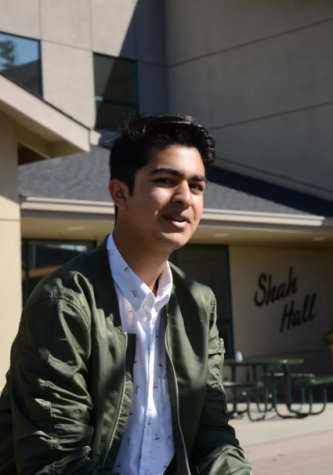Humans of Harker: Raymond Xu ponders philosophy
“My personal philosophy is now about being open to new experiences. Harker is a really good place, providing you with a lot of support and encouragement along the way. But as we go off to college, a lot of the support, may not be there anymore, because we may not be in such a warm and embracing environment like Harker is. I’m always trying to look for new experiences and new opportunities to grow and thrive,” Raymond Xu (12) said.
February 27, 2017
Ever since 8th grade, Raymond Xu (12) has analyzed the world through the lens of philosophy.
“Philosophy in general has broadened my views for how I can interpret the world and the things going on around me,” he said. “It allows me to be able to take a step back and reflect a little.”
Raymond first explored philosophy by debating philosophical frameworks surrounding a set topic.
“The way debate breaks down philosophy and compartmentalizes it into a form that can fit speech time constraints allows a lot of exposure really quickly to a lot of interesting thinkers,” he said. “Because it’s so contrived to fit the debate format where one side has to be right, a lot of times, the philosophers will be the first to admit that they don’t know everything and that they can’t claim to be right about everything.”
Helping with the organization of Harker’s philosophy club’s annual conference, attending the Stanford Humanity Institute course on Marx, Nietzsche and Freud and writing a paper about the Nietzschean power rationality applied to classical neo-liberal economics helped Raymond futher understand philosophy.
First studying 19th century German philosophers like Nietzsche or Marx and Classical thinkers like Aristotle and Plato, Raymond received a good foundation to explore more postmodern critical thinkers like Plato or Lacan. However, inspired by his literary review paper using psychoanalytic theory in his junior year, he found Freudian theory both controversial and interesting.
“My favorite philosophical theory is the psychoanalytical inspired by Freud,” he said. “A lot of people’s reaction to Freud’s theory is really mixed, and that’s kind of why it is really interesting to me. Freud attempts to explain all of human behavior in a couple of fixed modes, which can get acceptance and criticism at the same time. From a 21st-century perspective, you can look back and see how a lot of the culture norms that have shaped his theory have changed over time.”
Many of Raymond’s philosophical thoughts take place in the pool. Starting swimming when he was four and remaining a competitive swimmer until high school, Raymond also played water polo from freshmen to junior year and has coached at his local pool since sophomore year.
“Swimming is a place I like to be in if I want some space to think,” he said. “I like being alone in the pool that maybe a little bit isolated at times give you swim laps in the pool that repetition of going back and forth really allows you to cool your mind, get a lot of unnecessary thoughts out and really think about what you want to do, what sort of things you have to accomplish soon, that is pretty consistent with philosophy. You have to make sure you have priority set.”































![Setter Emma Lee (9) sets the ball to the middle during the match against Pinewood on Sept. 12. “[I’m looking forward to] getting more skilled, learning more about my position and also becoming better friends with all of my teammates, Emma said.](https://harkeraquila.com/wp-content/uploads/2023/09/DSC_4917-2-1200x795.jpg)













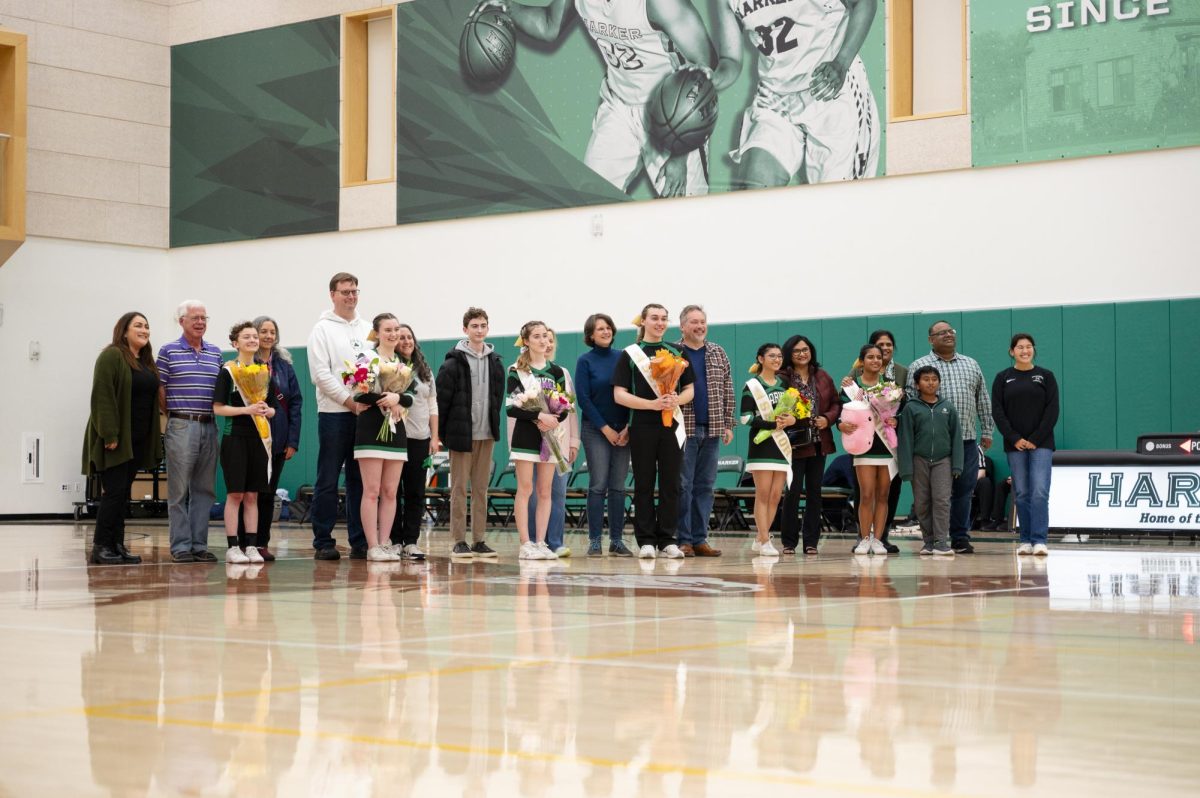


















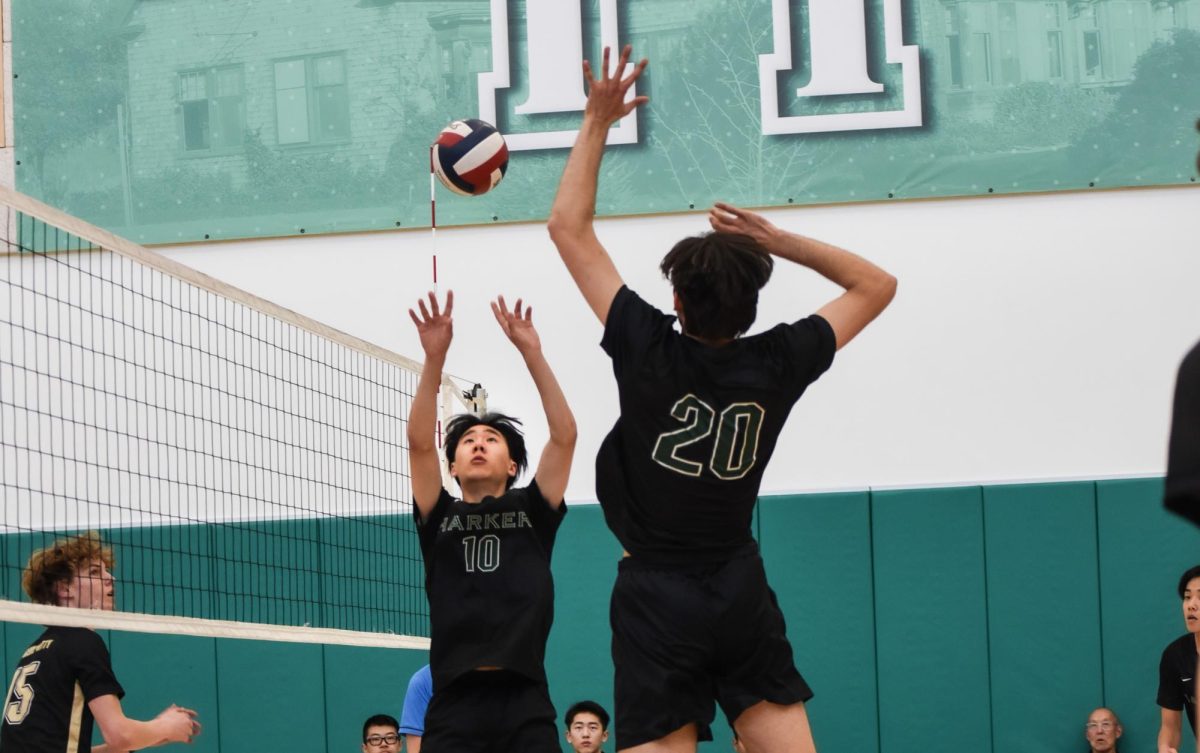
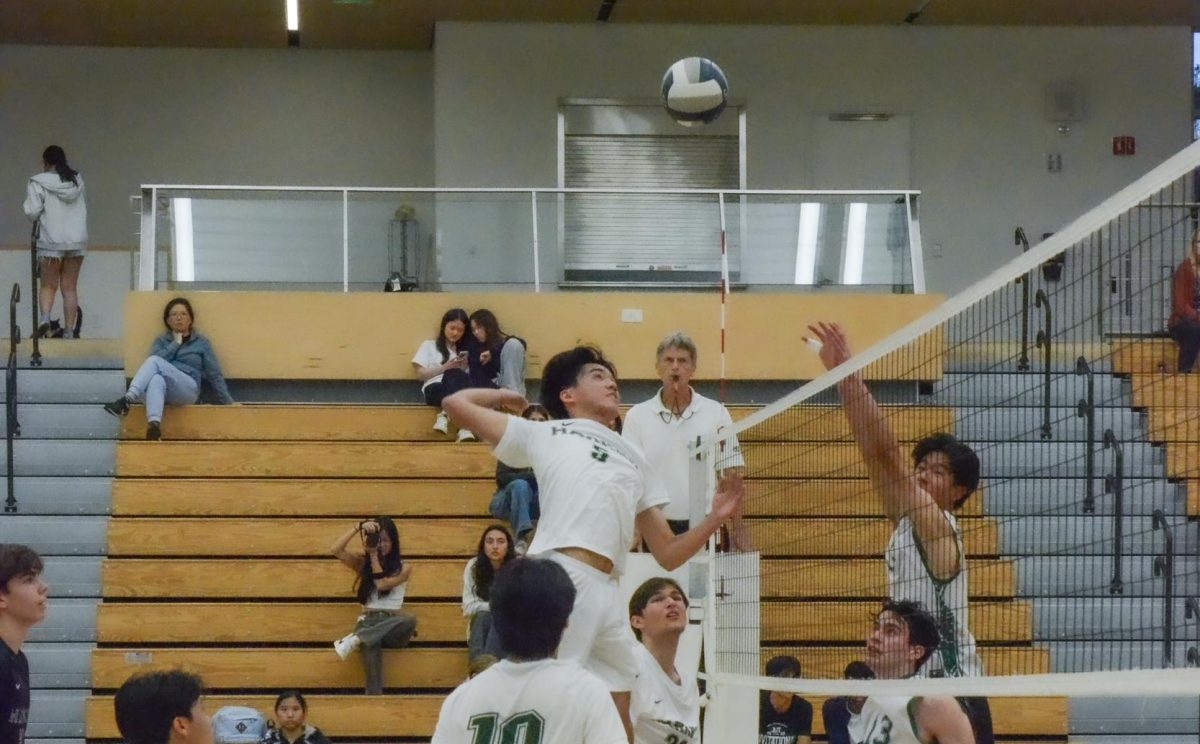
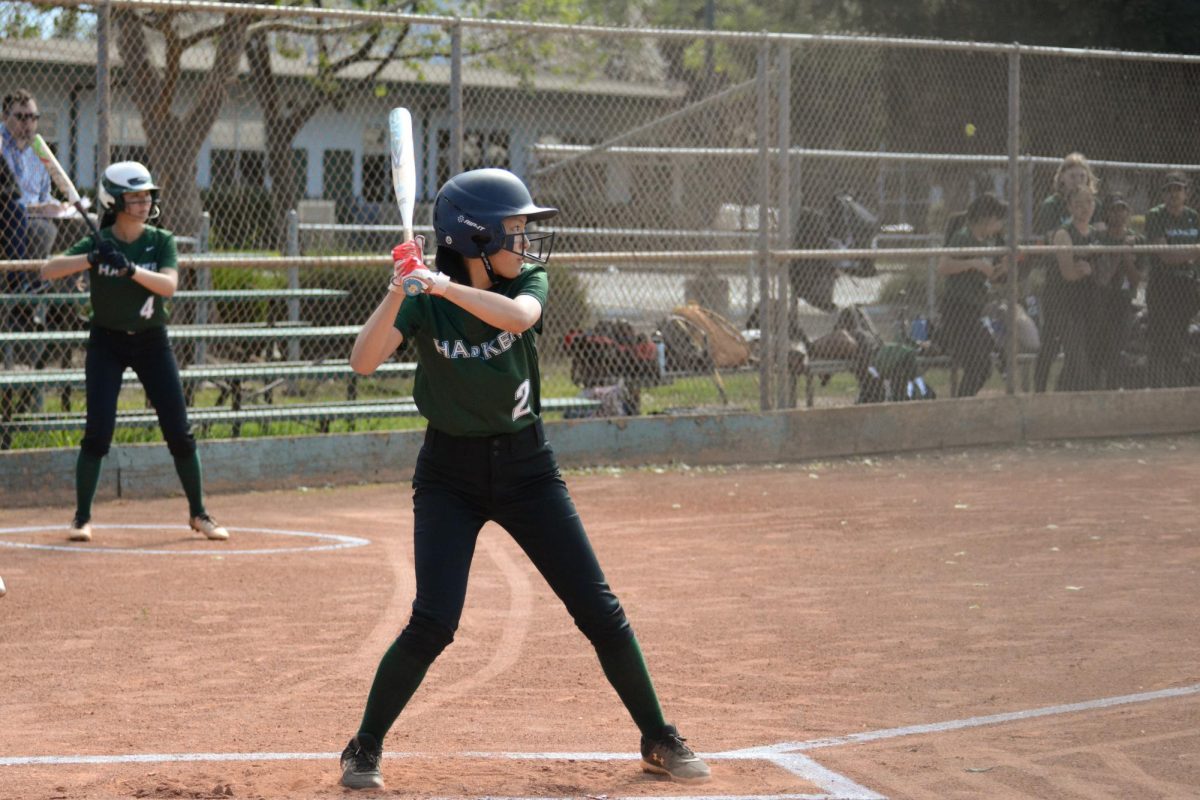
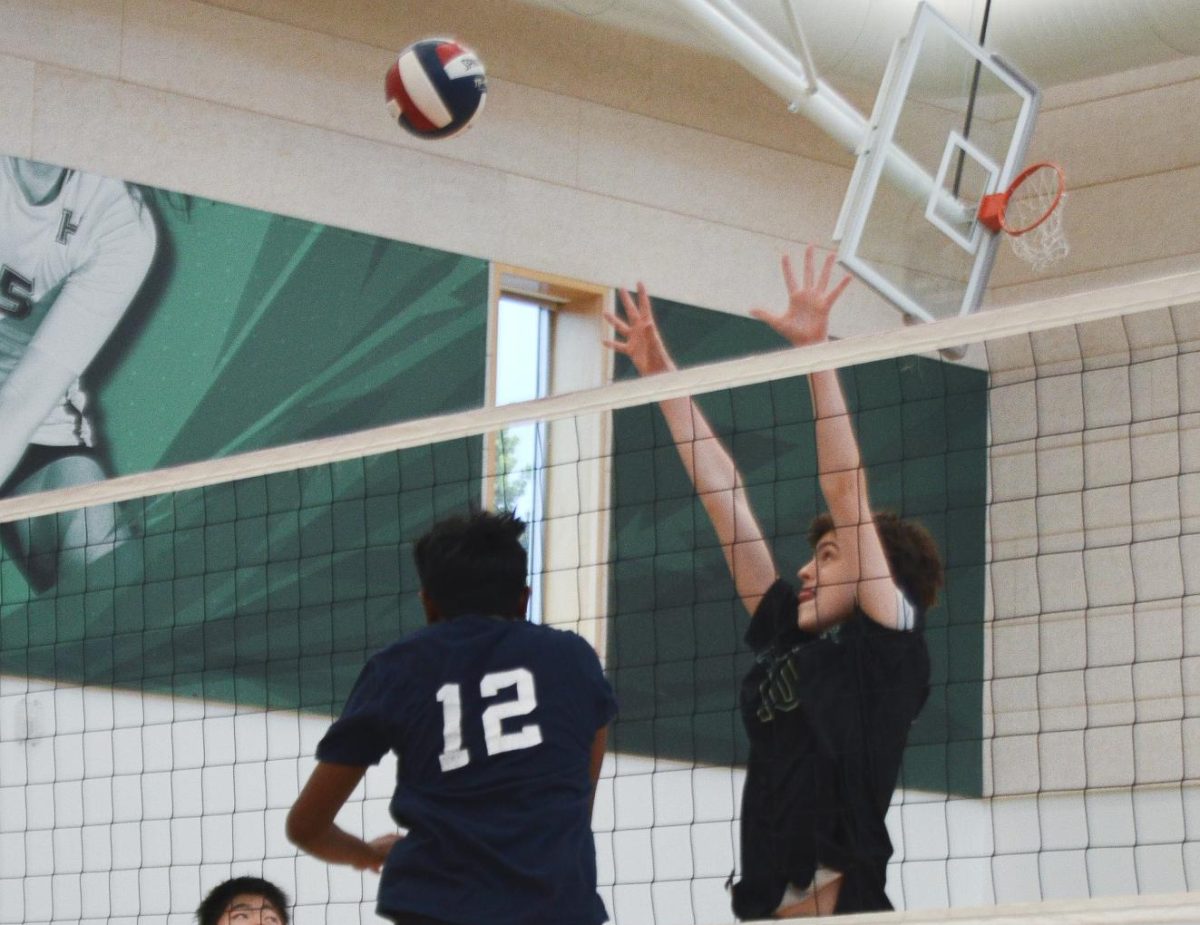
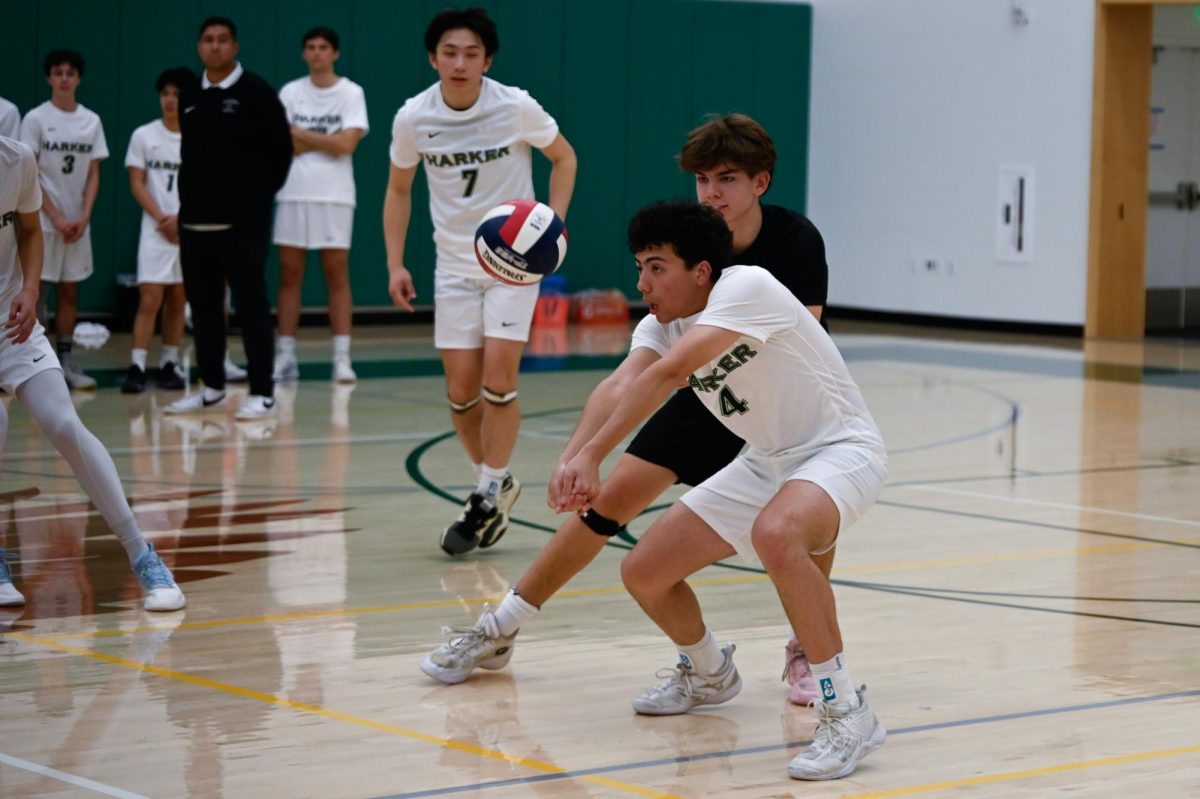



























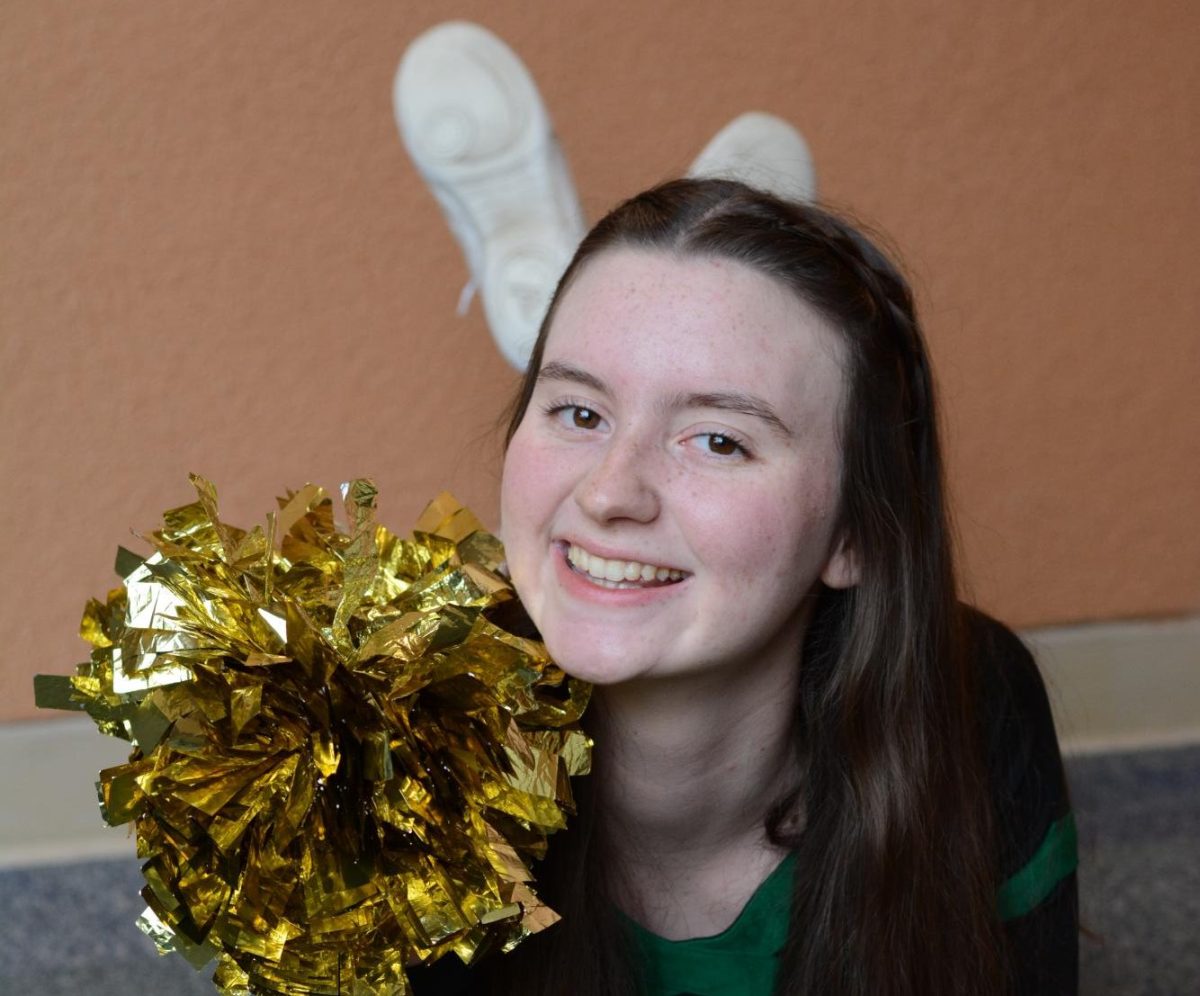
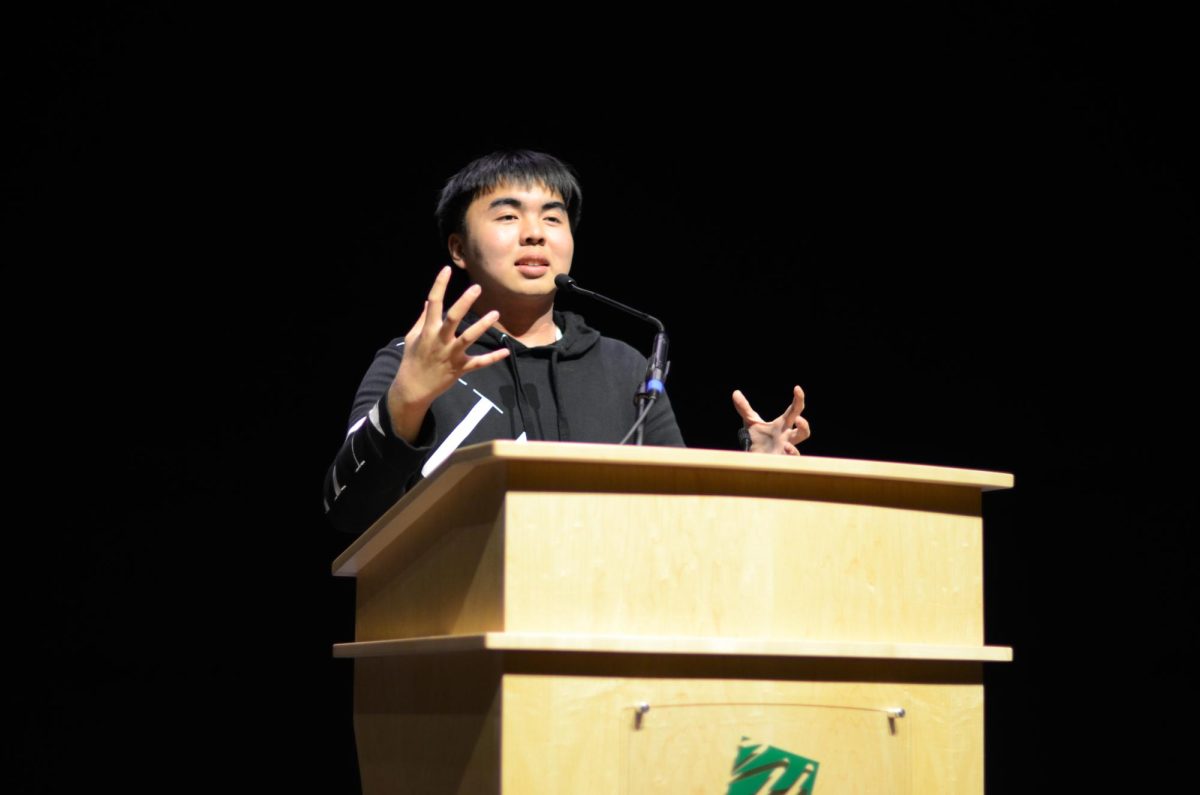
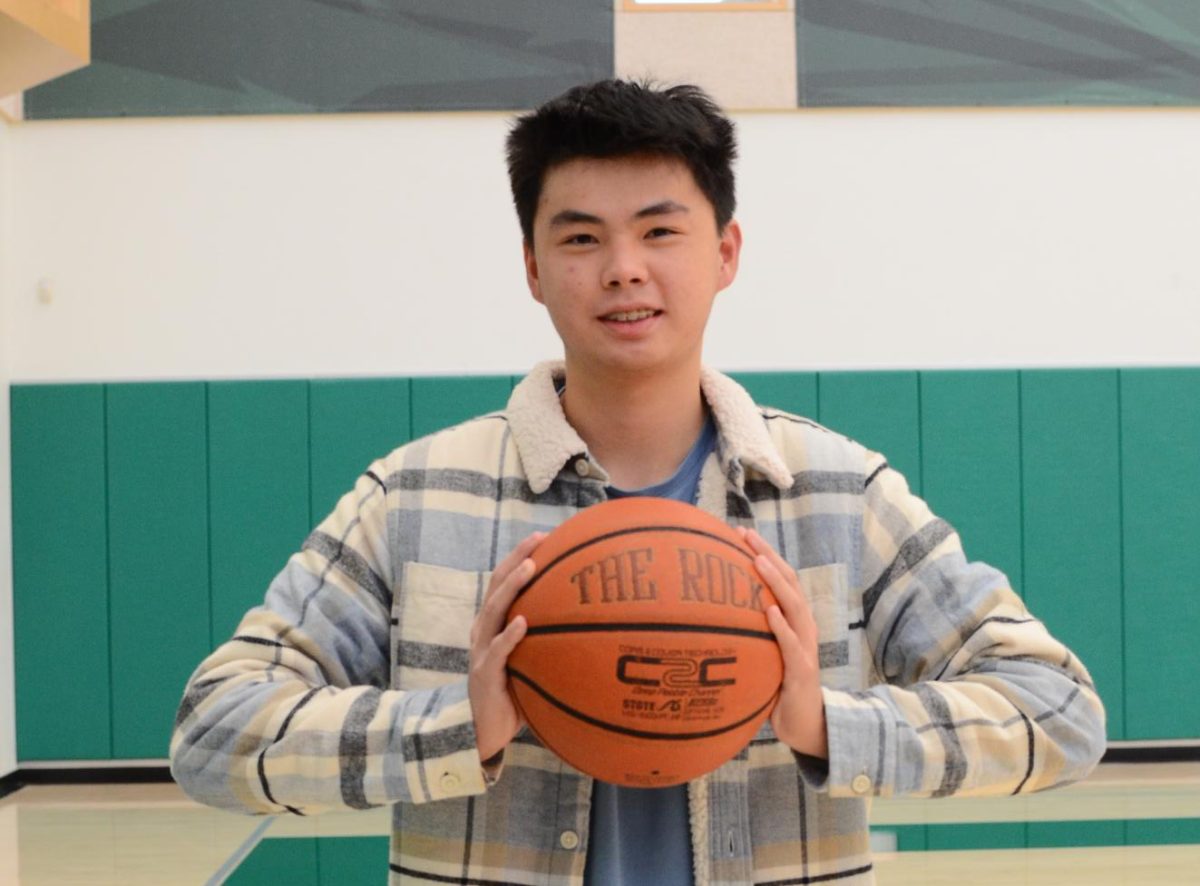
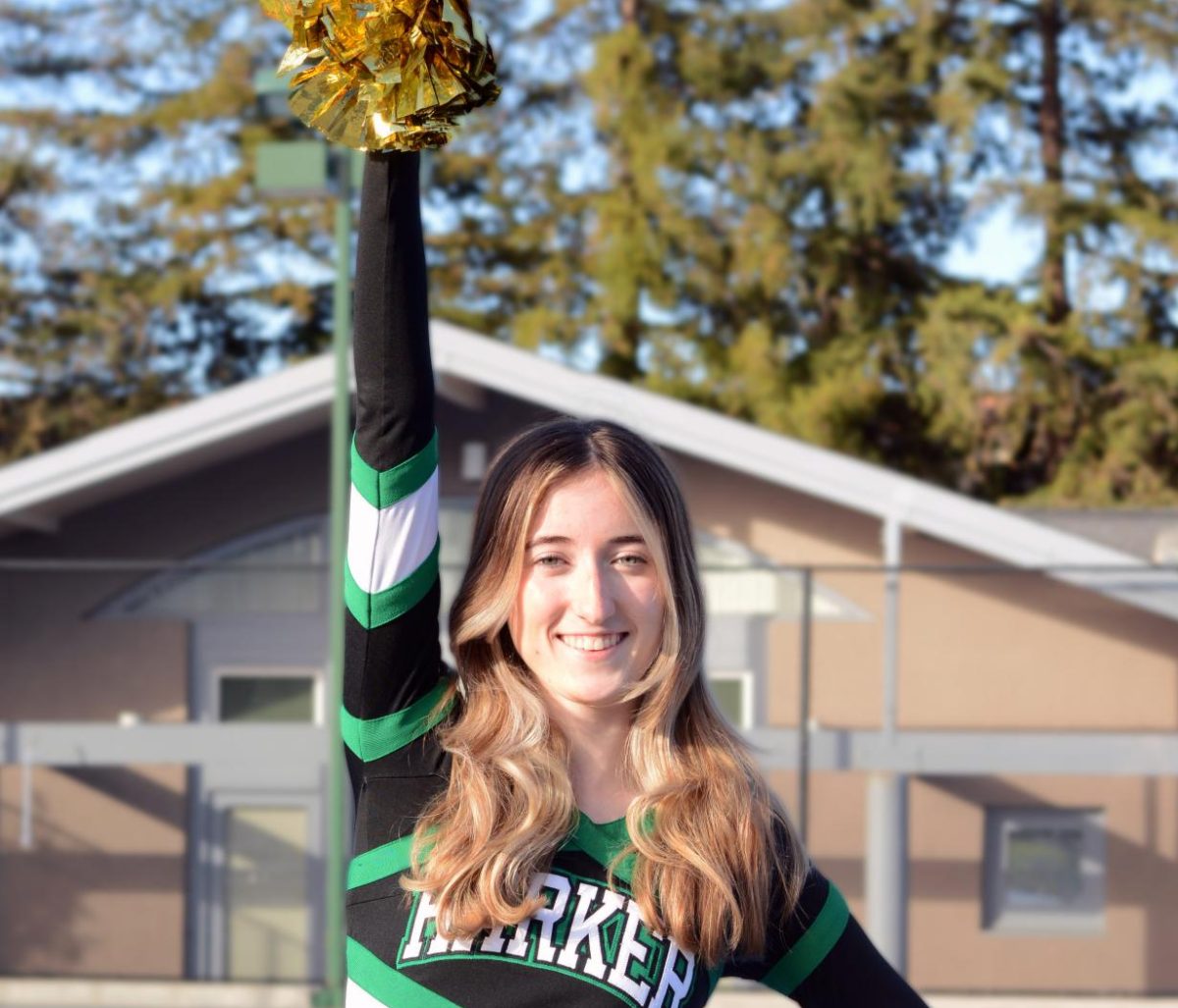
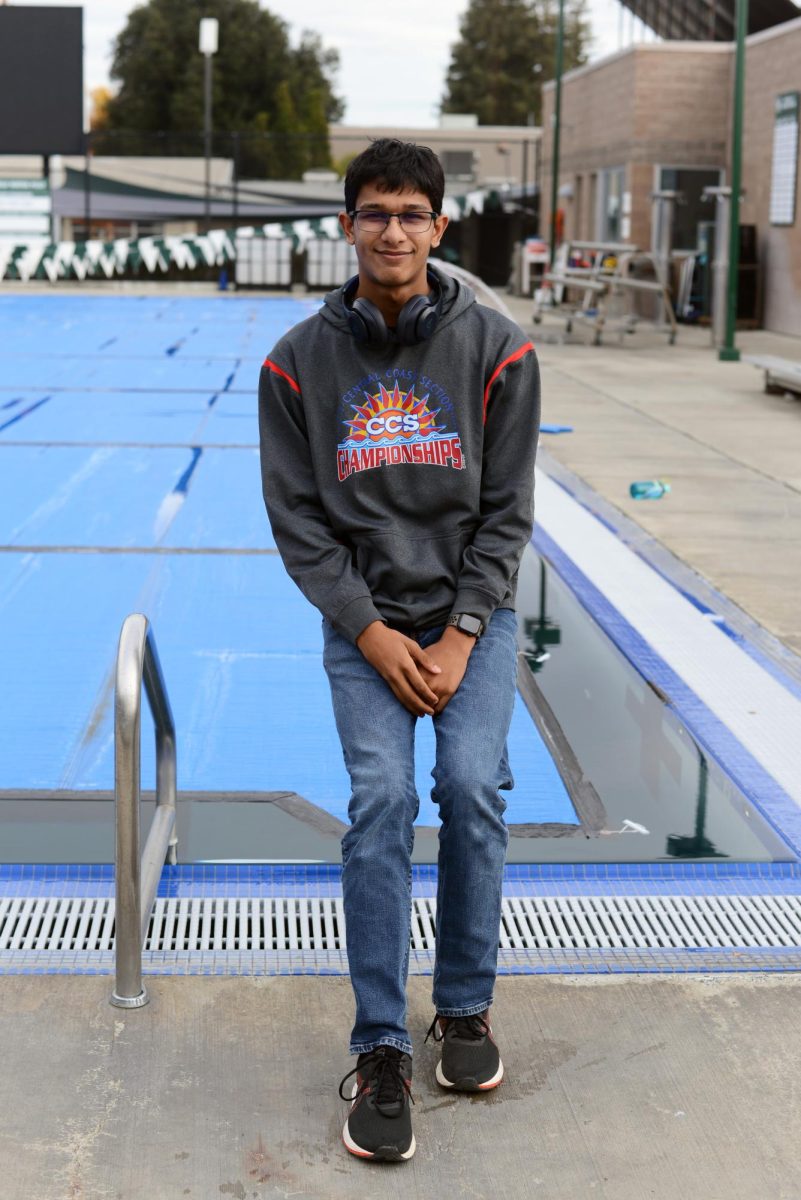
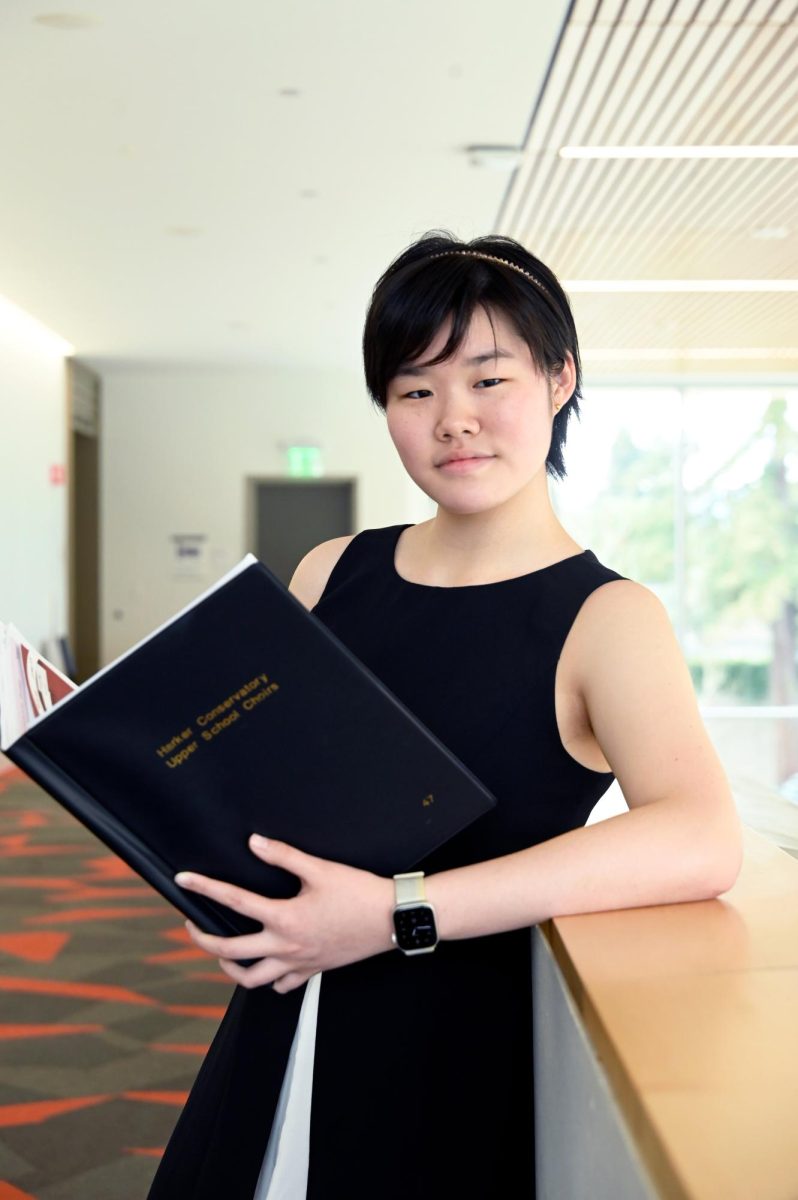








![“[Building nerf blasters] became this outlet of creativity for me that hasnt been matched by anything else. The process [of] making a build complete to your desire is such a painstakingly difficult process, but Ive had to learn from [the skills needed from] soldering to proper painting. Theres so many different options for everything, if you think about it, it exists. The best part is [that] if it doesnt exist, you can build it yourself, Ishaan Parate said.](https://harkeraquila.com/wp-content/uploads/2022/08/DSC_8149-900x604.jpg)


![“Animation just clicked in a way. I had been interested in art, but that felt different. [Animation] felt like it had something behind it, whereas previous things felt surface level. I wasnt making that crazy of things, but just the process of doing it was much more enjoyable, Carter Chadwick (22) said.](https://harkeraquila.com/wp-content/uploads/2022/08/Screen-Shot-2022-08-16-at-9.44.08-AM-900x598.png)


![“When I came into high school, I was ready to be a follower. But DECA was a game changer for me. It helped me overcome my fear of public speaking, and its played such a major role in who Ive become today. To be able to successfully lead a chapter of 150 students, an officer team and be one of the upperclassmen I once really admired is something Im [really] proud of,” Anvitha Tummala (21) said.](https://harkeraquila.com/wp-content/uploads/2021/07/Screen-Shot-2021-07-25-at-9.50.05-AM-900x594.png)



![“[Volleyball has] taught me how to fall correctly, and another thing it taught is that you don’t have to be the best at something to be good at it. If you just hit the ball in a smart way, then it still scores points and you’re good at it. You could be a background player and still make a much bigger impact on the team than you would think,” Anya Gert (’20) said.](https://harkeraquila.com/wp-content/uploads/2020/06/AnnaGert_JinTuan_HoHPhotoEdited-600x900.jpeg)

![“Im not nearly there yet, but [my confidence has] definitely been getting better since I was pretty shy and timid coming into Harker my freshman year. I know that theres a lot of people that are really confident in what they do, and I really admire them. Everyones so driven and that has really pushed me to kind of try to find my own place in high school and be more confident,” Alyssa Huang (’20) said.](https://harkeraquila.com/wp-content/uploads/2020/06/AlyssaHuang_EmilyChen_HoHPhoto-900x749.jpeg)













![“My slogan is ‘slow feet, don’t eat, and I’m hungry.’ You need to run fast to get where you are–you arent going to get those championships if you arent fast,” Angel Cervantes (12) said. “I want to do well in school on my tests and in track and win championships for my team. I live by that, [and] I can do that anywhere: in the classroom or on the field.”](https://harkeraquila.com/wp-content/uploads/2018/06/DSC5146-900x601.jpg)

![“I think getting up in the morning and having a sense of purpose [is exciting]. I think without a certain amount of drive, life is kind of obsolete and mundane, and I think having that every single day is what makes each day unique and kind of makes life exciting,” Neymika Jain (12) said.](https://harkeraquila.com/wp-content/uploads/2017/06/Screen-Shot-2017-06-03-at-4.54.16-PM.png)






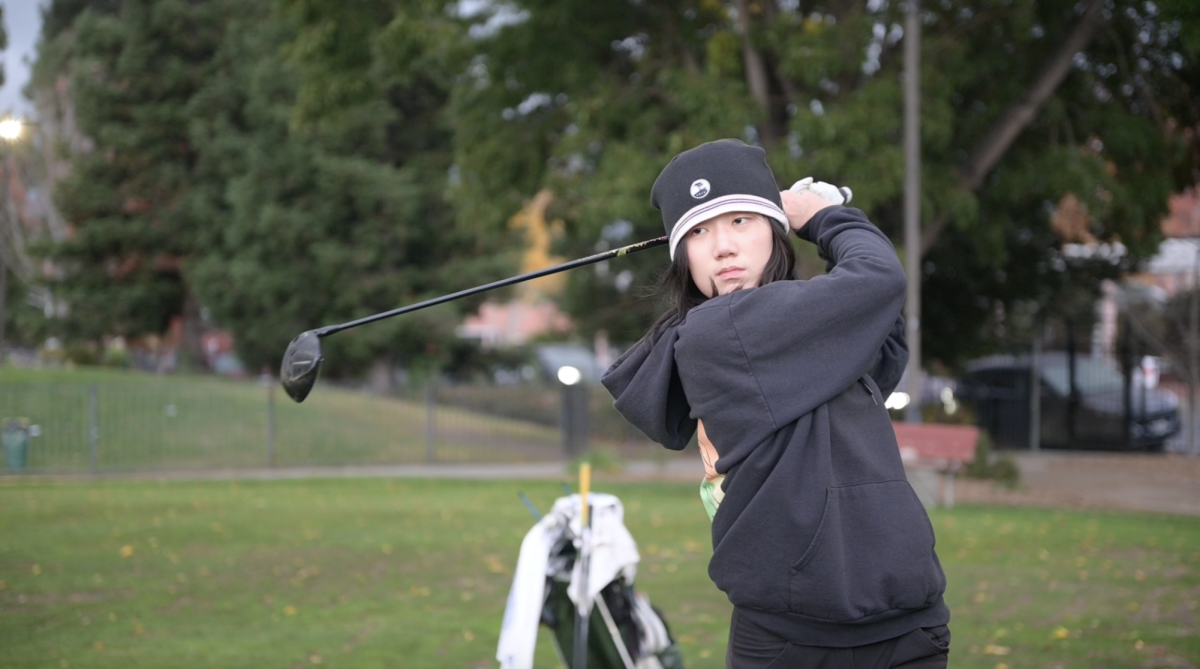
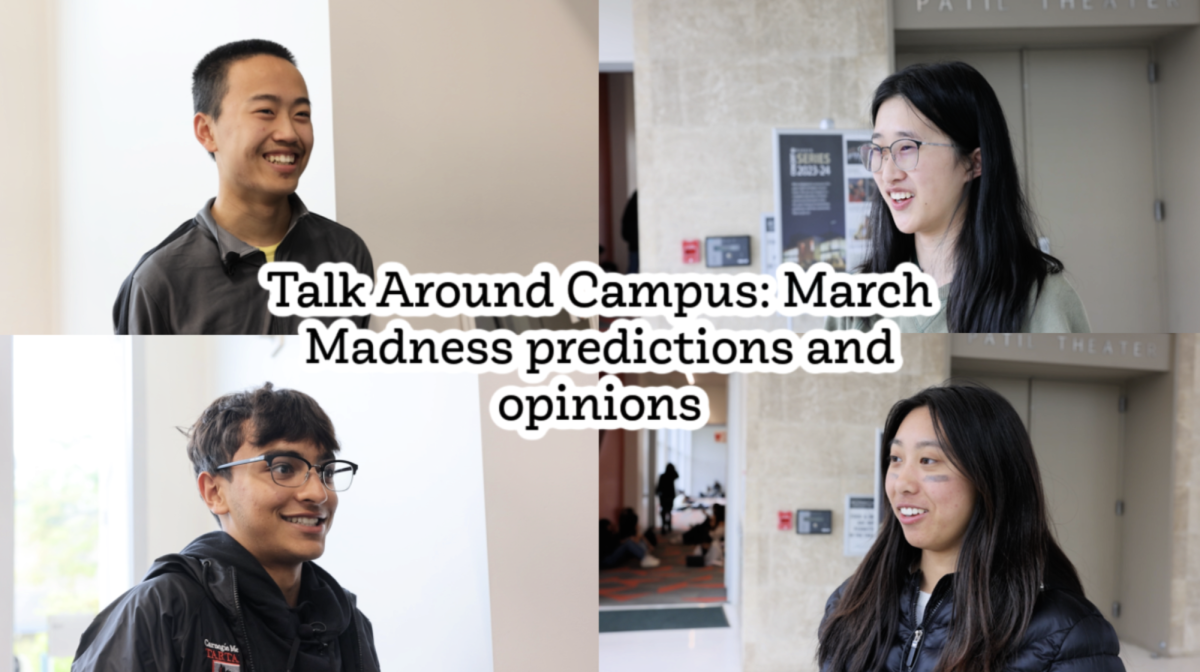
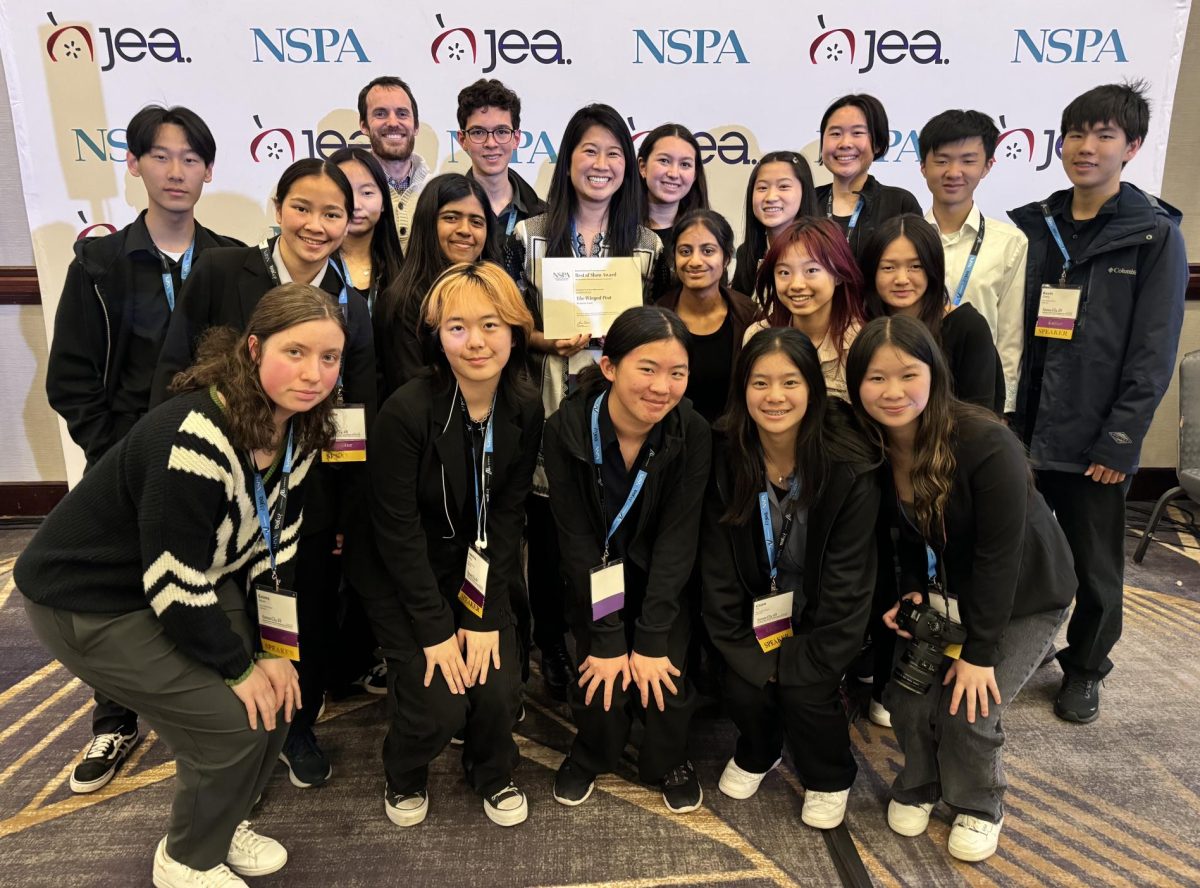


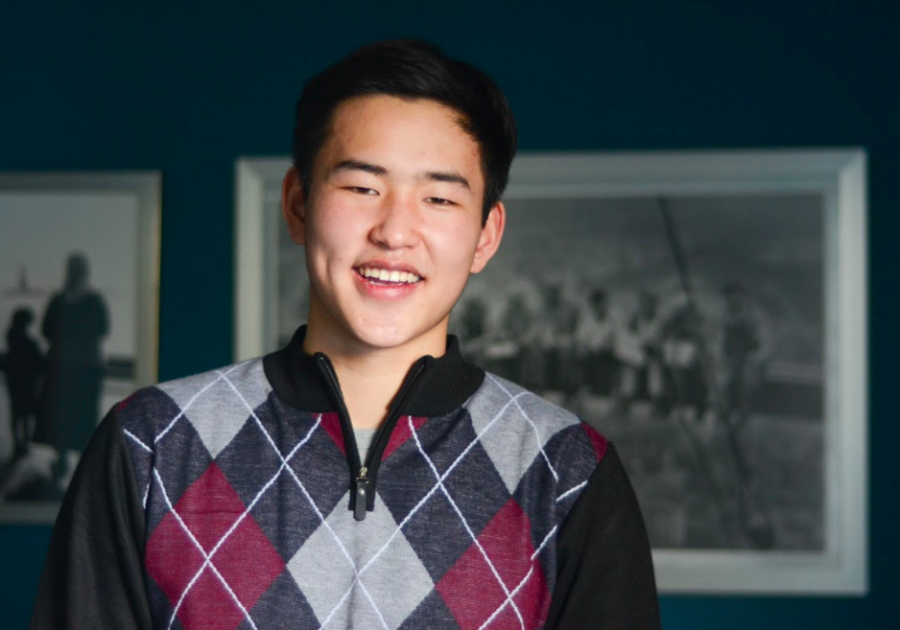
![“I think getting up in the morning and having a sense of purpose [is exciting]. I think without a certain amount of drive, life is kind of obsolete and mundane, and I think having that every single day is what makes each day unique and kind of makes life exciting,” Neymika Jain (12) said.](https://harkeraquila.com/wp-content/uploads/2017/06/Screen-Shot-2017-06-03-at-4.54.16-PM-325x475.png)
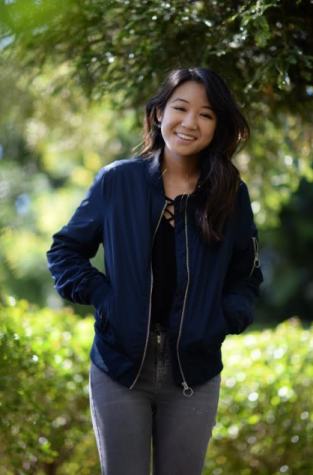
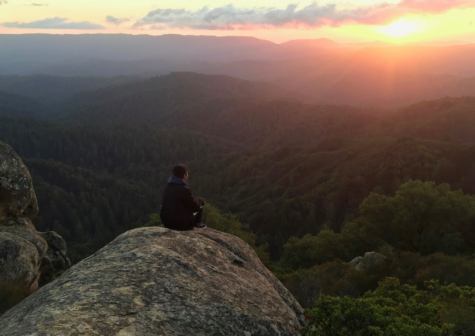

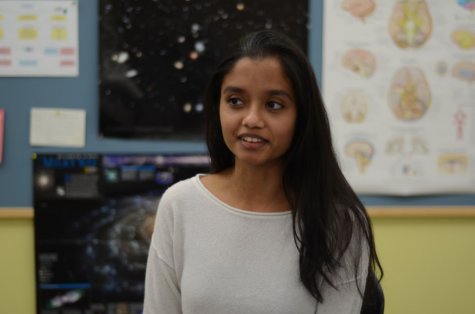
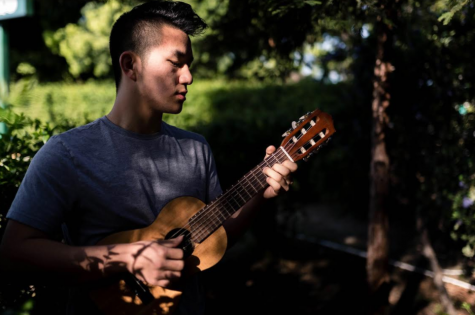
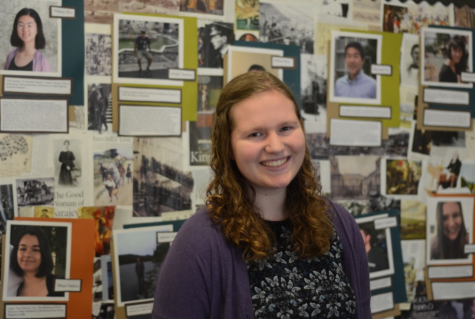
![“[Photography] opened my eyes to things that don’t exist except for in that one-second exposure that your eyes can’t capture, writing can’t capture and even video can’t capture. I think it’s an obsession with the world. I’d look outside, and think, ‘These colors are beautiful,’ even though I really like working in black and white. It’s this overall obsession but the way I learn about myself. The camera, when it’s in my hand, teaches me about who I am, and the things that I don’t really know. It’s really taught me how to love, not just the people I’m with, but the overall world, Alex Mo (12) said.](https://harkeraquila.com/wp-content/uploads/2017/05/Screen-Shot-2017-05-24-at-6.16.20-PM-475x311.png)
![“[I care about] diversity of opinion. Some people think you have to care about one thing only, and you cant care about other things, but I just like Harker because everyone has different perspectives and different ideas. If everyone cared about for example saving the environment or being really good at one sport, then the world wouldnt function, Colt McNealy (12) said.](https://harkeraquila.com/wp-content/uploads/2017/05/Screen-Shot-2017-05-13-at-8.55.53-AM-475x317.png)
